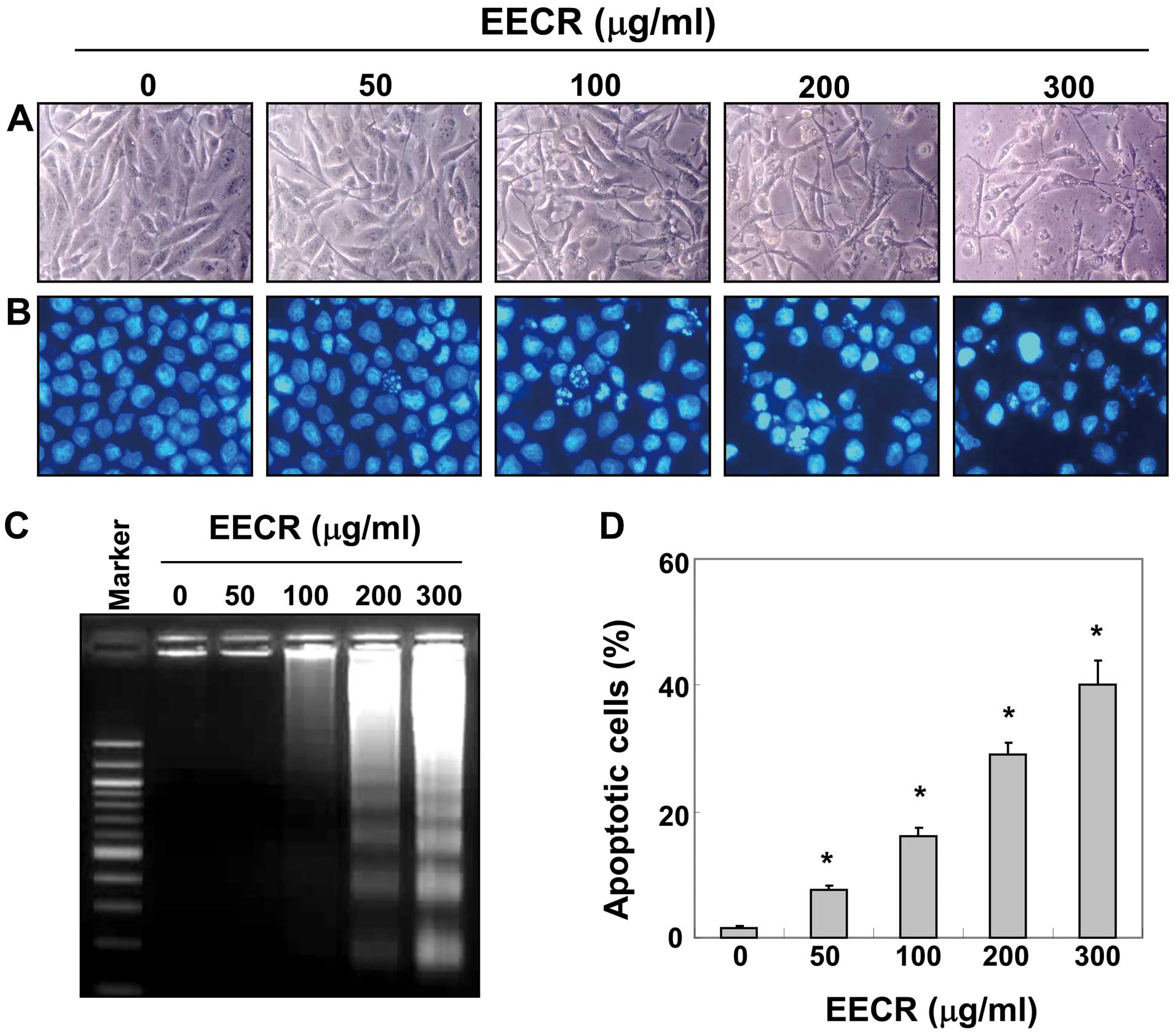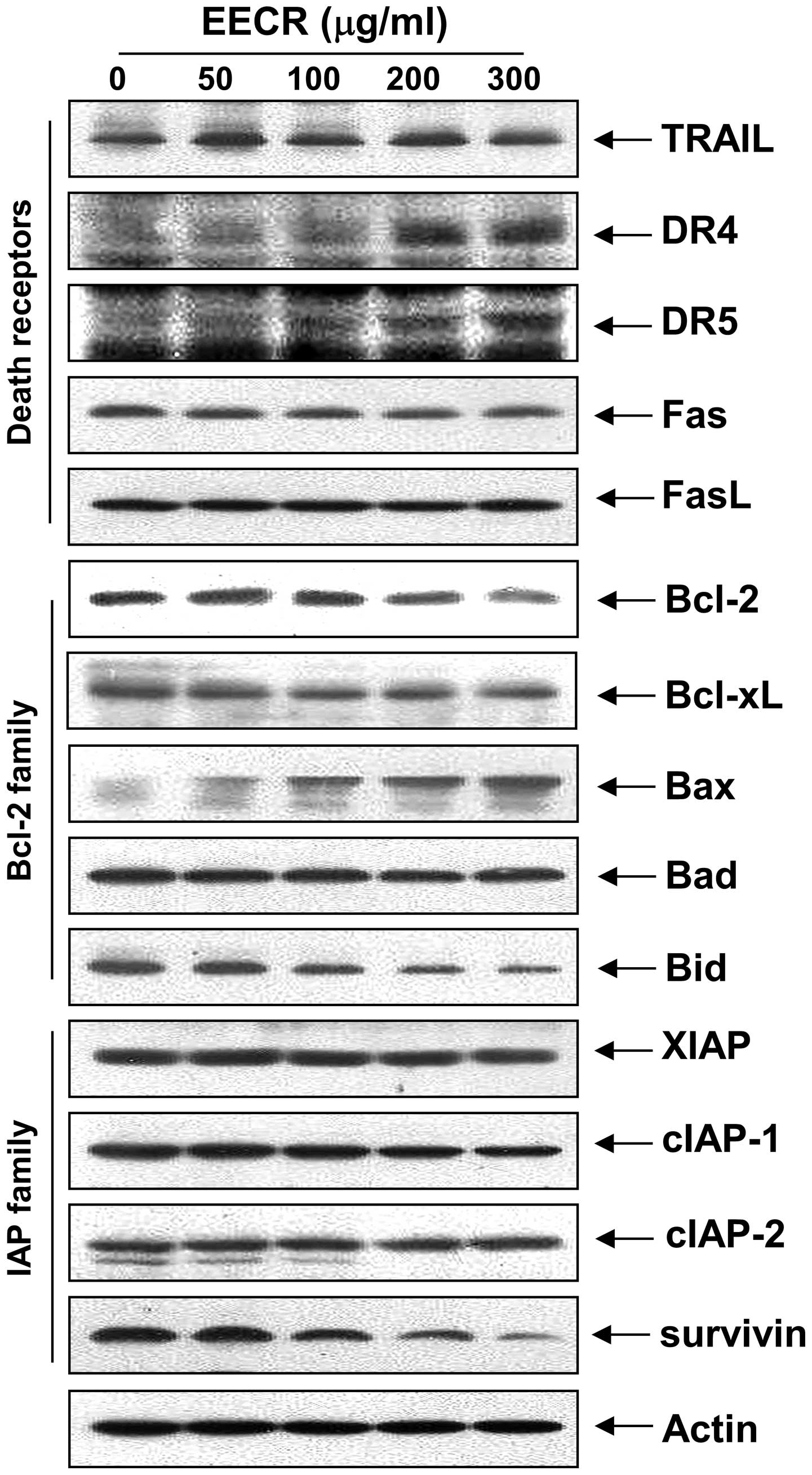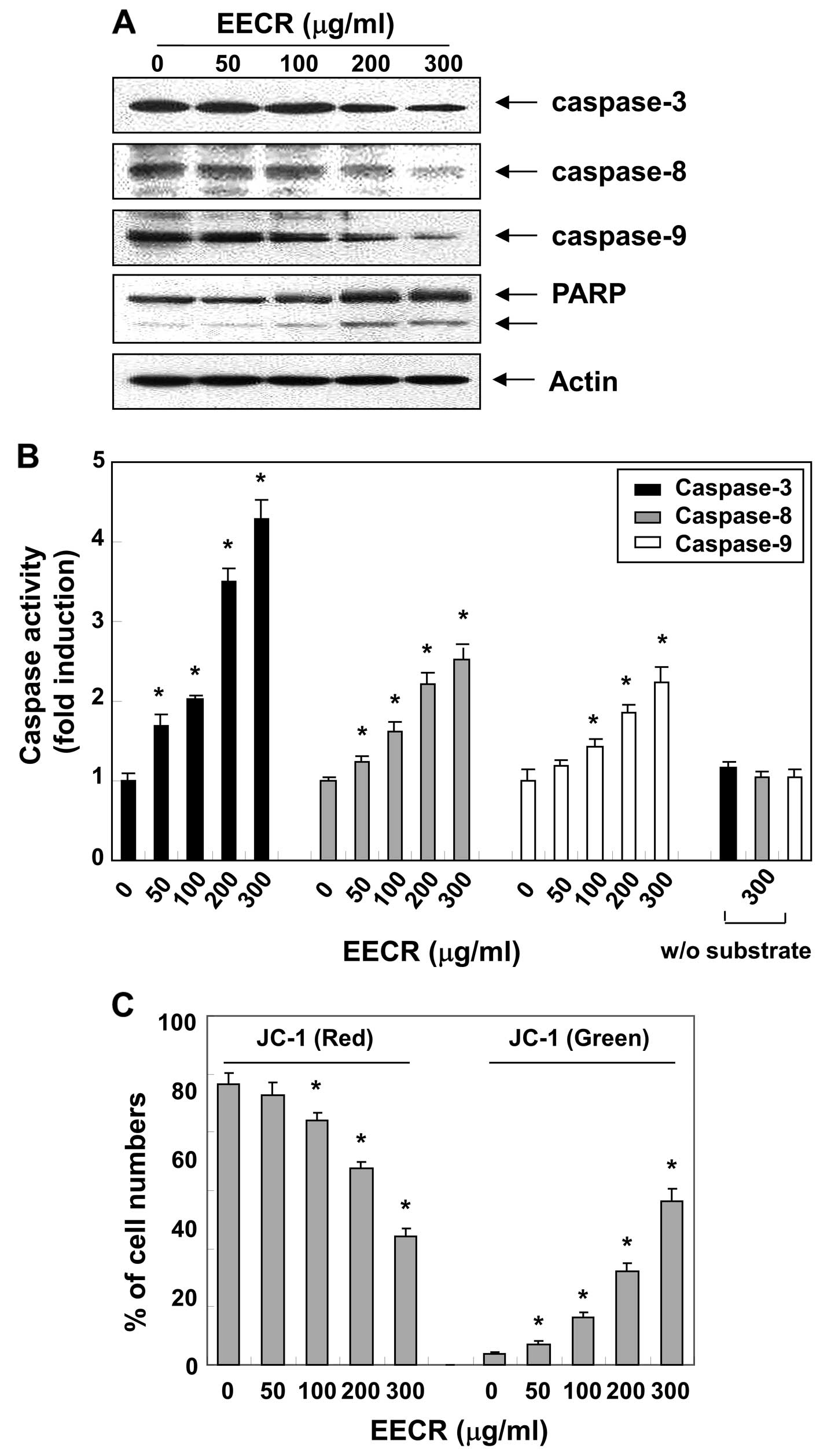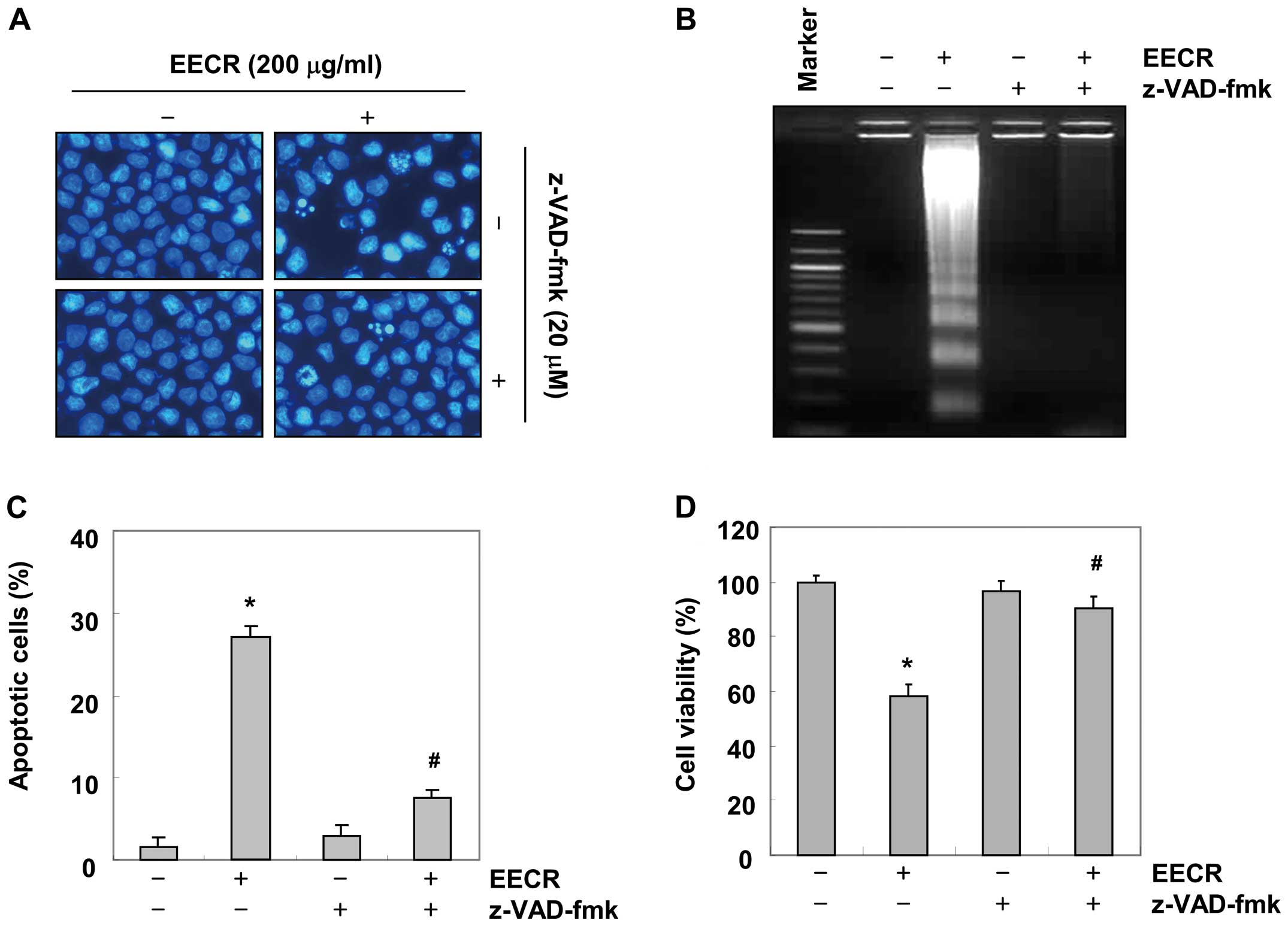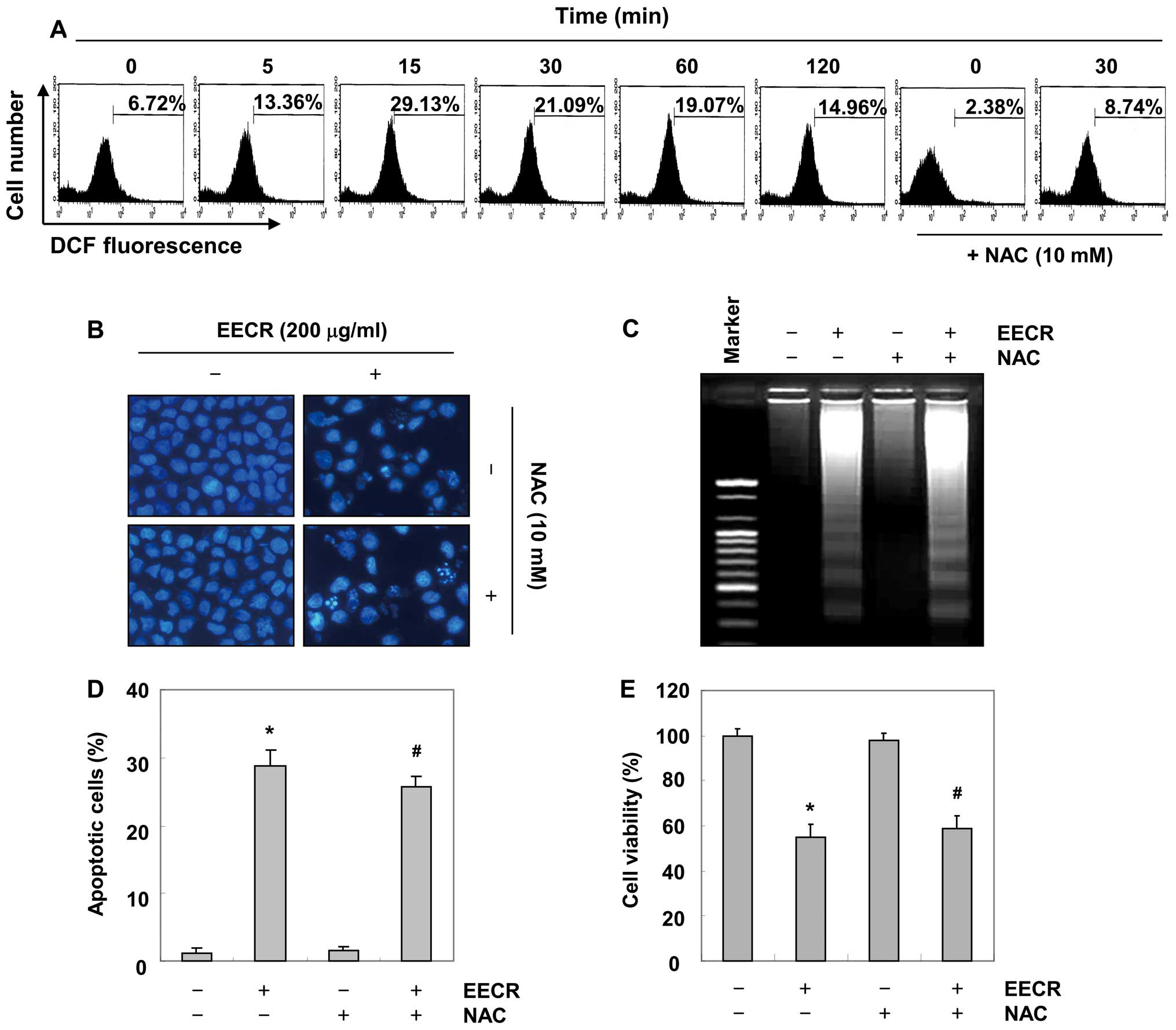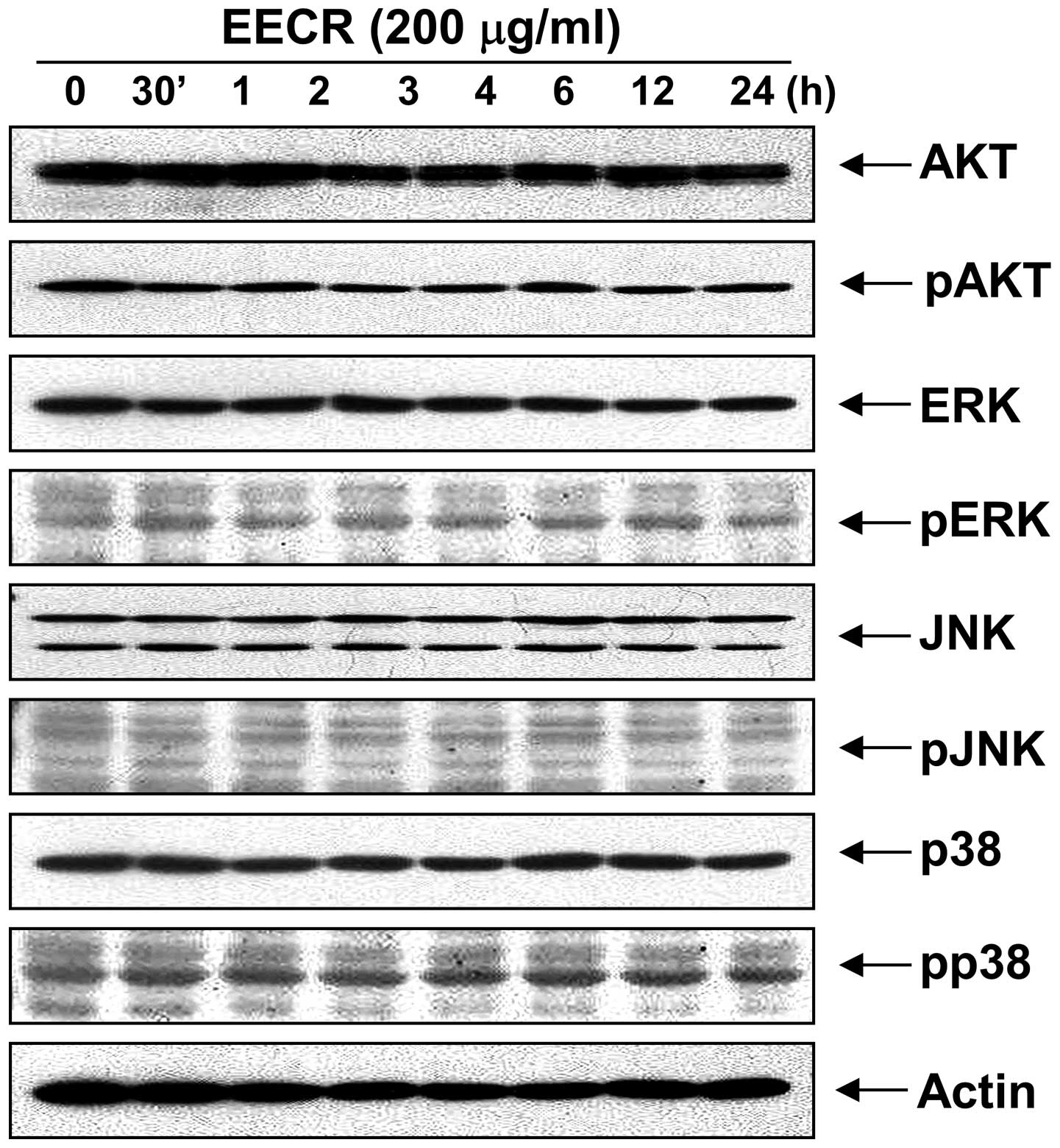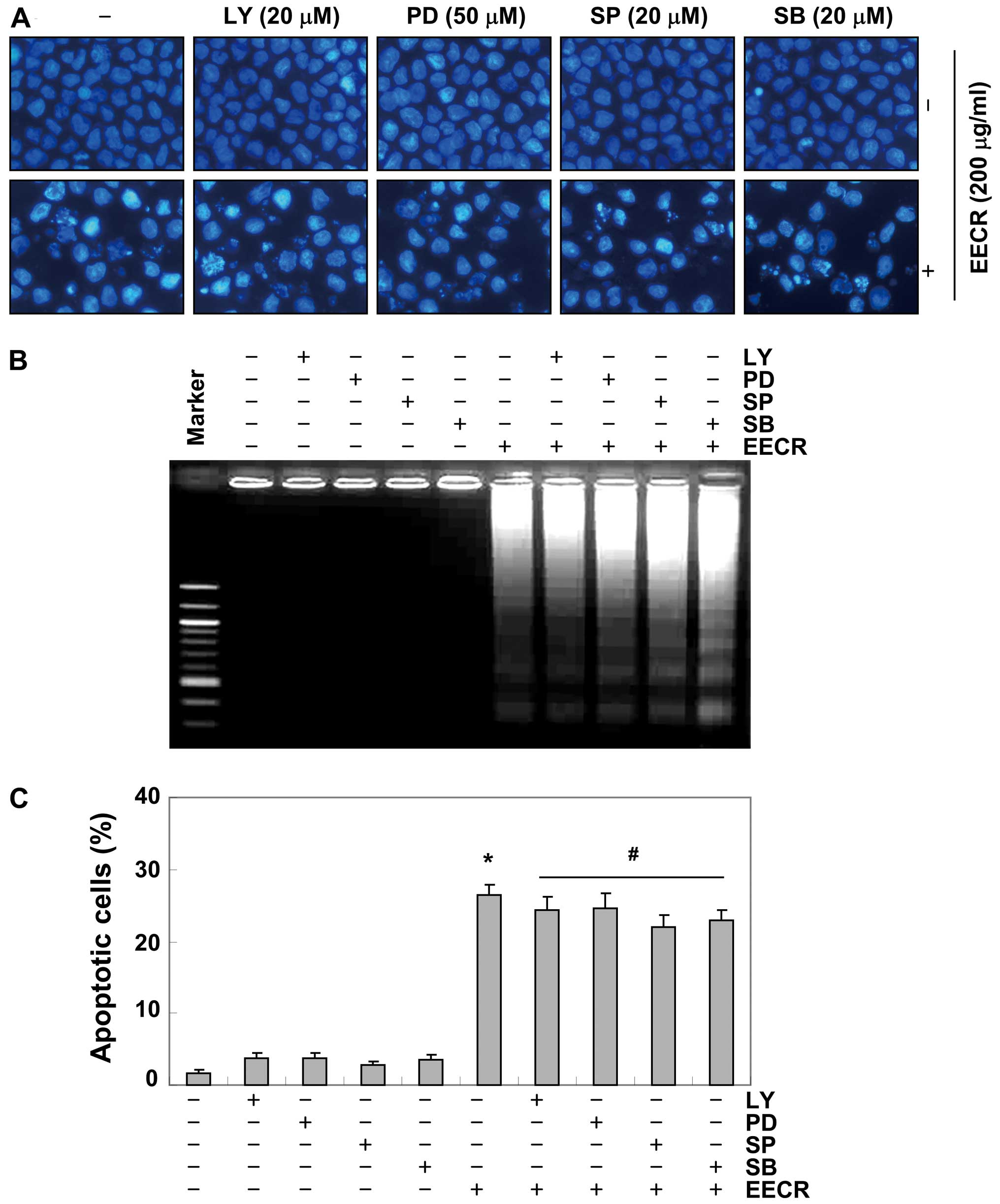|
1
|
Jemal A, Bray F, Center MM, Ferlay J, Ward
E and Forman D: Global cancer statistics. CA Cancer J Clin.
61:69–90. 2011. View Article : Google Scholar
|
|
2
|
Forouzanfar MH, Foreman KJ, Delossantos
AM, Lozano R, Lopez AD, Murray CJ and Naghavi M: Breast and
cervical cancer in 187 countries between 1980 and 2010: a
systematic analysis. Lancet. 378:1461–1484. 2011. View Article : Google Scholar : PubMed/NCBI
|
|
3
|
Senkus E, Kyriakides S, Penault-Llorca F,
Poortmans P, Thompson A, Zackrisson S and Cardoso F; ESMO
Guidelines Working Group. Primary breast cancer: ESMO Clinical
Practice Guidelines for diagnosis, treatment and follow-up. Ann
Oncol. 24(Suppl 6): vi7–vi23. 2013. View Article : Google Scholar : PubMed/NCBI
|
|
4
|
Spector D, Deroo LA and Sandler DP:
Lifestyle behaviors in black and white women with a family history
of breast cancer. Prev Med. 52:394–397. 2011. View Article : Google Scholar : PubMed/NCBI
|
|
5
|
Danial NN and Korsmeyer SJ: Cell death:
critical control points. Cell. 116:205–219. 2004. View Article : Google Scholar : PubMed/NCBI
|
|
6
|
Jin Z and El-Deiry WS: Overview of cell
death signaling pathways. Cancer Biol Ther. 4:139–163.
2005.PubMed/NCBI
|
|
7
|
Caroppi P, Sinibaldi F, Fiorucci L and
Santucci R: Apoptosis and human diseases: mitochondrion damage and
lethal role of released cytochrome c as proapoptotic protein. Curr
Med Chem. 16:4058–4065. 2009. View Article : Google Scholar : PubMed/NCBI
|
|
8
|
Kaufmann T, Strasser A and Jost PJ: Fas
death receptor signalling: roles of Bid and XIAP. Cell Death
Differ. 19:42–50. 2012. View Article : Google Scholar : PubMed/NCBI
|
|
9
|
Zha J, Weiler S, Oh KJ, Wei MC and
Korsmeyer SJ: Posttranslational N-myristoylation of BID as a
molecular switch for targeting mitochondria and apoptosis. Science.
290:1761–1765. 2000. View Article : Google Scholar : PubMed/NCBI
|
|
10
|
Chung KM and Yu SW: Interplay between
autophagy and programmed cell death in mammalian neural stem cells.
BMB Rep. 46:383–390. 2013. View Article : Google Scholar : PubMed/NCBI
|
|
11
|
Mansilla S, Llovera L and Portugal J:
Chemotherapeutic targeting of cell death pathways. Anticancer
Agents Med Chem. 12:226–238. 2012. View Article : Google Scholar
|
|
12
|
Rufini A and Melino G: Cell death
pathology: the war against cancer. Biochem Biophys Res Commun.
414:445–450. 2011. View Article : Google Scholar : PubMed/NCBI
|
|
13
|
Thebtaranonth C, Thebtaranonth Y,
Wanauppathamkul S and Yuthavong Y: Antimalarial sesquiterpenes from
tubers of Cyperus rotundus: structure of
10,12-peroxycalamenene, a sesquiterpene endoperoxide.
Phytochemistry. 40:125–128. 1995.PubMed/NCBI
|
|
14
|
Zhu M, Luk HH, Fung HS and Luk CT:
Cytoprotective effects of Cyperus rotundus against ethanol
induced gastric ulceration in rats. Phytother Res. 11:392–394.
1997.
|
|
15
|
Uddin SJ, Mondal K, Shilpi JA and Rahman
MT: Antidiarrhoeal activity of Cyperus rotundus.
Fitoterapia. 77:134–136. 2006. View Article : Google Scholar
|
|
16
|
Sharma R and Gupta R: Cyperus
rotundus extract inhibits acetylcholinesterase activity from
animal and plants as well as inhibits germination and seedling
growth in wheat and tomato. Life Sci. 80:2389–2392. 2007.
View Article : Google Scholar
|
|
17
|
Kilani-Jaziri S, Neffati A, Limem I,
Boubaker J, Skandrani I, Sghair MB, Bouhlel I, Bhouri W, Mariotte
AM, Ghedira K, Dijoux Franca MG and Chekir-Ghedira L: Relationship
correlation of antioxidant and antiproliferative capacity of
Cyperus rotundus products towards K562 erythroleukemia
cells. Chem Biol Interact. 181:85–94. 2009. View Article : Google Scholar : PubMed/NCBI
|
|
18
|
Yazdanparast R and Ardestani A: In vitro
antioxidant and free radical scavenging activity of Cyperus
rotundus. J Med Food. 10:667–674. 2007. View Article : Google Scholar : PubMed/NCBI
|
|
19
|
Ardestani A and Yazdanparast R: Cyperus
rotundus suppresses AGE formation and protein oxidation in a
model of fructose-mediated protein glycoxidation. Int J Biol
Macromol. 41:572–578. 2007. View Article : Google Scholar
|
|
20
|
Gupta MB, Palit TK, Singh N and Bhargava
KP: Pharmacological studies to isolate the active constituents from
Cyperus rotundus possessing anti-inflammatory, anti-pyretic
and analgesic activities. Indian J Med Res. 59:76–82.
1971.PubMed/NCBI
|
|
21
|
Seo WG, Pae HO, Oh GS, Chai KY, Kwon TO,
Yun YG, Kim NY and Chung HT: Inhibitory effects of methanol extract
of Cyperus rotundus rhizomes on nitric oxide and superoxide
productions by murine macrophage cell line, RAW 264.7 cells. J
Ethnopharmacol. 76:59–64. 2001.PubMed/NCBI
|
|
22
|
Kilani S, Ben Ammar R, Bouhlel I,
Abdelwahed A, Hayder N, Mahmoud A, Ghedira K and Chekir-Ghedira L:
Investigation of extracts from (Tunisian) Cyperus rotundus
as antimutagens and radical scavengers. Environ Toxicol Pharmacol.
20:478–484. 2005. View Article : Google Scholar : PubMed/NCBI
|
|
23
|
Tsoyi K, Jang HJ, Lee YS, Kim YM, Kim HJ,
Seo HG, Lee JH, Kwak JH, Lee DU and Chang KC: (+)-Nootkatone and
(+)-valencene from rhizomes of Cyperus rotundus increase
survival rates in septic mice due to heme oxygenase-1 induction. J
Ethnopharmacol. 137:1311–1317. 2011.PubMed/NCBI
|
|
24
|
Lemaure B, Touché A, Zbinden I, Moulin J,
Courtois D, Macé K and Darimont C: Administration of Cyperus
rotundus tubers extract prevents weight gain in obese Zucker
rats. Phytother Res. 21:724–730. 2007.
|
|
25
|
Kumar KH and Khanum F: Hydroalcoholic
extract of Cyperus rotundus ameliorates
H2O2-induced human neuronal cell damage via
its anti-oxidative and anti-apoptotic machinery. Cell Mol
Neurobiol. 33:5–17. 2013.
|
|
26
|
Hemanth Kumar K, Tamatam A, Pal A and
Khanum F: Neuroprotective effects of Cyperus rotundus on
SIN-1 induced nitric oxide generation and protein nitration:
ameliorative effect against apoptosis mediated neuronal cell
damage. Neurotoxicology. 34:150–159. 2013.
|
|
27
|
Fu XC, Shan HL, Bai HB and Hu R:
Protective effect of Jiangbaiweiyan tablet on ethanol-induced
gastric mucosa injury in rats. Zhejiang Da Xue Xue Bao Yi Xue Ban.
40:391–394. 2011.(In Chinese).
|
|
28
|
He CL, Yi PF, Fan QJ, Shen HQ, Jiang XL,
Qin QQ, Song Z, Zhang C, Wu SC, Wei XB, Li YL and Fu BD:
Xiang-Qi-Tang and its active components exhibit anti-inflammatory
and anticoagulant properties by inhibiting MAPK and NF-κB signaling
pathways in LPS-treated rat cardiac microvascular endothelial
cells. Immunopharmacol Immunotoxicol. 35:215–224. 2013.PubMed/NCBI
|
|
29
|
Lee SJ, Hwang SO, Noh EJ, Kim DU, Nam M,
Kim JH, Nam JH and Hoe KL: Transactivation of bad by
vorinostat-induced acetylated p53 enhances doxorubicin-induced
cytotoxicity in cervical cancer cells. Exp Mol Med. 46:e762014.
|
|
30
|
Lazebnik YA, Kaufmann SH, Desnoyers S,
Poirier GG and Earnshaw WC: Cleavage of poly(ADP-ribose) polymerase
by a proteinase with properties like ICE. Nature. 371:346–347.
1994. View
Article : Google Scholar : PubMed/NCBI
|
|
31
|
Matés JM, Segura JA, Alonso FJ and Márquez
J: Intracellular redox status and oxidative stress: implications
for cell proliferation, apoptosis, and carcinogenesis. Arch
Toxicol. 82:273–299. 2008.PubMed/NCBI
|
|
32
|
Trueba GP, Sánchez GM and Giuliani A:
Oxygen free radical and antioxidant defense mechanism in cancer.
Front Biosci. 9:2029–2044. 2004. View
Article : Google Scholar : PubMed/NCBI
|
|
33
|
Ashkenazi A and Dixit VM: Apoptosis
control by death and decoy receptors. Curr Opin Cell Biol.
11:255–260. 1999. View Article : Google Scholar : PubMed/NCBI
|
|
34
|
Peter ME and Krammer PH: The
CD95(APO-1/Fas) DISC and beyond. Cell Death Differ. 10:26–35. 2003.
View Article : Google Scholar : PubMed/NCBI
|
|
35
|
Deveraux QL and Reed JC: IAP family
proteins - suppressors of apoptosis. Genes Dev. 13:239–252. 1999.
View Article : Google Scholar : PubMed/NCBI
|
|
36
|
Roy N, Deveraux QL, Takahashi R, Salvesen
GS and Reed JC: The c-IAP-1 and c-IAP-2 proteins are direct
inhibitors of specific caspases. EMBO J. 16:6914–6925. 1997.
View Article : Google Scholar : PubMed/NCBI
|
|
37
|
Schumacker PT: Reactive oxygen species in
cancer cells: live by the sword, die by the sword. Cancer Cell.
10:175–176. 2006. View Article : Google Scholar : PubMed/NCBI
|
|
38
|
Yoeli-Lerner M and Toker A: Akt/PKB
signaling in cancer: a function in cell motility and invasion. Cell
Cycle. 5:603–605. 2006. View Article : Google Scholar : PubMed/NCBI
|
|
39
|
Hu L, Hofmann J, Lu Y, Mills GB and Jaffe
RB: Inhibition of phosphatidylinositol 3′-kinase increases efficacy
of paclitaxel in in vitro and in vivo ovarian cancer models. Cancer
Res. 62:1087–1092. 2002.
|
|
40
|
Kim EK and Choi EJ: Pathological roles of
MAPK signaling pathways in human diseases. Biochim Biophys Acta.
1802:396–405. 2010. View Article : Google Scholar : PubMed/NCBI
|
|
41
|
Wagner EF and Nebreda AR: Signal
integration by JNK and p38 MAPK pathways in cancer development. Nat
Rev Cancer. 9:537–549. 2009. View Article : Google Scholar : PubMed/NCBI
|
















